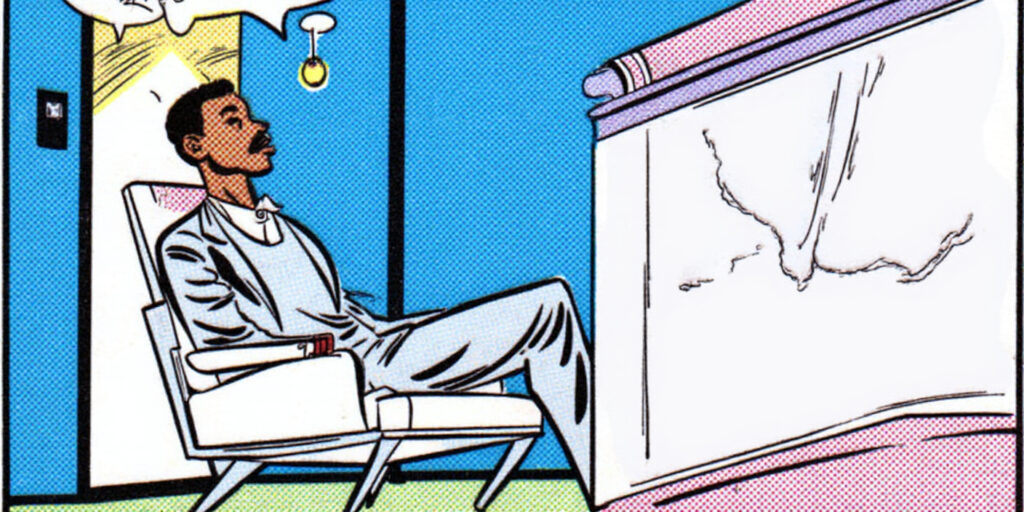How to Improve Critical Thinking: 10 Effective Strategies
14 Oct 2024 By: Mary Dellosa
Updated

What is Critical Thinking?
Critical thinking means carefully evaluating information before forming opinions or decisions. It involves questioning assumptions, considering different perspectives, and staying open to new ideas. Instead of accepting things at face value, it helps you dig deeper, reflect, and make thoughtful choices
What is one way you are developing better critical thinking habits?
To help you develop better critical thinking habits, we asked business leaders and coaches this question for their best insights. From having brainstorming sessions to learning to ask the right questions, there are several ways to develop habits that may improve your critical thinking skills. One effective approach is implementing critical thinking training for employees, which provides structured methods and real-world scenarios to enhance decision-making and problem-solving abilities across teams.
One effective approach is implementing critical thinking training for employees, which provides structured methods and real-world scenarios to enhance decision-making and problem-solving abilities across teams
Tools and techniques on how to improve critical thinking skills:

- Have Brainstorming Sessions
- Begin With The End in Mind
- Check Your Biases
- Question Information and Verify from Multiple Sources
- Ted-Talk To Boost Critical Thinking
- Practice Thinking Out Loud
- Ask for Feedback
- Question Your Own Assumptions
- Practice Arguing in Favor of Something You Disagree With
- Learn To Ask The Right Questions
Have Brainstorming Sessions
Nothing encourages critical thinking skills quite like being exposed to different ideas and viewpoints. You’re taken out of your comfort zone when you have collaborative brainstorming sessions, as you challenge the assumptions of your thought process.
Get as many business leaders in on these sessions as you can. When you approach a problem from multiple angles, you’re better able to come up with effective solutions.
Debra Hildebrand, Hildebrand Solutions, LLC
Begin With The End in Mind
While it might seem counterintuitive, one of the best critical thinking techniques is beginning with the end in mind. The “end” can be your goal, a completed project, or a new product.
Once you know what you’re working towards, work collaboratively with your team to reverse engineer the concepts in order to achieve your desired results. Such exercises in critical thinking force you to think outside of the box and fuel innovation.
Chris Abrams, Abrams Insurance Solutions
Check Your Biases
As the CEO of a company, it’s important that I make all my employees feel heard and understood. In order to do this, I need to approach conversations with a sense of neutrality. It’s easy to think that my opinion is based on logic but bias affects much more than we think.
It’s important to step outside of my experiences and see from the perspective of others. I work hard to unpack my prejudices so that they won’t affect my ability to think critically.
Ubaldo Perez, Hush Anesthetic
Question Information and Verify from Multiple Sources
One way I am developing better critical thinking habits is by questioning the information that I consume. For example, before accepting anything as fact, I try to verify the information from multiple sources.
Additionally, I am also trying to develop a more open mind when considering different viewpoints. By doing this, I am hoping to avoid confirmation bias and instead gain a more well-rounded understanding of the world.
Nathan Richardson, Bariatric Journal
Ted-Talk To Boost Critical Thinking
I believe that a steady stream of Ted Talks can be a great way to expand your ideas by thinking more critically. I find that by learning about various topics that I am less knowledgeable in, I start to approach familiar topics with a new perspective. I also find it broadening to read the comment section of the videos, because you can get interesting feedback from all types of different people, across the world.
Jorge Vivar, Mode
Practice Thinking Out Loud
One way to improve your critical thinking skills is to practice “thinking out loud.” That is, when confronted with a problem or issue, take the time to stop and really think about it before acting or speaking.
Consider all of the possible implications and outcomes of your actions before you make a decision. This process may feel slow at first, but with practice, it will become second nature. Additionally, “thinking out loud” can also be helpful when working on projects with others.
Marc De Diego Ferrer, MCA Assessors
Ask for Feedback
We all know that you constantly need to improve your analytical and research skills to keep your critical thinking at the right level. However, if you want to know how to improve critical thinking in the long run, you also need to question your ideas by asking others for feedback.
That’s why it’s important that you apply another way of thinking and see things from a different perspective. Listening to others can help you challenge your assumptions and rethink your way of doing things. It also fosters creativity and gives you new solutions to overcome cognitive bias.
Also, feedback will help you make your ideas understandable to others. There is a high chance that you will need to present your work to other stakeholders. Getting feedback beforehand is a great way to adapt your presentation to different audiences and ensure that your ideas are clear to others.
Dorota Lysienia, MyPerfectResume
Question Your Own Assumptions
One way I am developing better critical thinking habits is by learning to recognize and question my own assumptions. We all have a set of beliefs that we operate from, and while some of these may be helpful, others can constrain our thinking and prevent us from seeing other possibilities.
When I catch myself making an assumption, I try to pause and reflect on why I believe it to be true. This process of questioning and introspection has helped me to develop stronger critical thinking skills.
Asako Ito, Divine Lashes
Practice Arguing in Favor of Something You Disagree With
A great critical thinking exercise is to develop the best possible argument in favor of something with which you disagree. For example, if you believe that electric engines in cars are better for the environment than combustion engines, then argue the point that combustion engines are better. Only, research the best possible supporting evidence, logic, and arguments in favor of this position. Then, do the same exercise for your existing position and compare the outcomes. Not only will this help you to make rational arguments and improve your critical thinking skills, but it’s a great exercise in empathy and you’ll become more persuasive as a result.
Dennis Consorte, Snackable Solutions
Learn To Ask The Right Questions
Desmond Tutu’s quote sums up my entire approach to developing critical thinking skills. Inquiring prompts deeper thought. Critical thinkers, I believe, ask a lot of questions. All you need to learn is how to ask the right questions on a daily basis.
This applies to anything from simple tasks like choosing a dress color to major financial decisions like buying a property. It helps in creating a mindset that prepares you to tackle more important and in-depth questions.
However, critical thinking also entails knowing how and where to look for a solution. Practice makes perfect, as they say. I normally start my daily exercise by considering something I’d like to know about, which could be anything.
What piques my interest? What would I like to learn more about? Why do things happen this way, and how can I improve? Asking questions encourages you to be curious about the things that interest you.
Vartika Kashyap, ProofHub
Terkel creates community-driven content featuring expert insights. Sign up at terkel.io to answer questions and get published.
Ways to Practice Critical Thinking

The question ‘how to improve critical thinking?’ is in a way, like doing homework for your mind. It’s not just about reading or solving problems, it’s about experimenting with different approaches, writing down your thoughts, and challenging yourself to see things from new angles.
And just like you’d sometimes ask a mentor or peer for feedback on your work, it can be helpful to pay Edubirdie writers for homework to review your ideas, suggest new perspectives. And also guide you toward sharper critical thinking.
After all, professionals who excel in academic fields often have the critical thinking skills you’re looking to develop. They can help you stretch your thinking, question assumptions, and explore concepts you might not have considered on your own.
Critical Thinking Strategies
Here’s a more humanized and simplified version of the critical thinking strategies:
- Ask Questions – Don’t just accept things as they are. Be curious and dig deeper.
- Get the Facts – Before making any decision, gather all the information you can.
- Break It Down – Take complex issues and break them into smaller, easier-to-understand parts.
- Look at All Sides – Consider different opinions and perspectives to get a clearer picture.
- Check for Bias – Be aware of your personal biases that could cloud your judgment.
- Think Step by Step – Use logic to connect the dots and come to the right conclusion.
- Imagine the Outcome – Think about the potential impact before making a decision.
- Combine Ideas – Bring together different thoughts and solutions to create something new.
- Practice Often – Challenge yourself with problem-solving to keep your mind sharp.
- Learn from Experience – Reflect on past decisions to improve your thinking for next time.
Process on How to Improve Critical Thinking
- Critical thinking starts with defining the problem. If the issue isn’t clear, solutions will only create more confusion.
- Next, gather reliable information—facts, data, and opinions that give you a full picture. With the right details, you’ll have a solid foundation.
- Then, analyze the information by breaking it into smaller parts, spotting patterns, and identifying gaps. This step often reveals new insights.
- From there, develop and compare solutions. Weigh the pros and cons of each option and make sure your sources are accurate and unbiased.
- Once you’ve evaluated the choices, decide and take action. Confidence comes from knowing you’ve explored the problem from every angle.
- Finally, reflect on the outcome. What worked? What didn’t? Reflection turns each decision into a learning opportunity, sharpening your critical thinking for the future.
Frequently Asked Questions
Ready for the next step?
You’ve got the tools now. Strategies to question assumptions, check your bias, and break problems down like a pro. But ideas alone don’t spark change.
When you’re ready to put your critical thinking into action, partnering with a team that thinks just as deeply can make all the difference.
Curious how smarter workflows lead to smarter decisions? Explore our BPO services and let’s sharpen your edge together. Talk to us.

